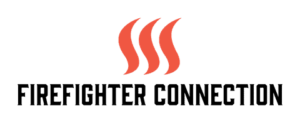
There are plenty of articles out there that tell you what to do during a firefighter oral board interview. What is often more important is knowing what you shouldn’t do.It’s to Preparing for the firefighter hiring interview process. There are 2 and sometime 3 interviews a candidate must prepare for. Make the Firefighter oral board interviews your strength during the process, instead of fearing the interview.
Here are 9 Things You Should NOT Do During Your Firefighter Interview. I’ve been in the fire service for 31 years and have been apart of the new firefighter recruit hiring and testing process for nearly my entire career. I have seen and heard everything, good, and bad. Here are the top 9 mistakes you will want to avoid during your firefighter interview.
The Top 9 Things You Should NOT Do During Your Firefighter Interview.
- Talking too much answering the question and rambling.
- Starting to answer the question before listening to the complete question.
- Guessing what the interviewer is trying to ask.
- Don’t let you nerves show.
- Not making eye contact with the interview board.
- Answers are not compete, this is no time for a simple yes or no.
- Negative about former employer or department.
- Speak clearly, don’t mumble or travel off.
- Taking notes during the Interview.
1. Don’t Talk Too Much!
We all like to talk about ourselves, however, during the firefighter oral board interview it’s important to keep it short and concise. The initial interview for a firefighter position is usually fairly short, most likely under 20 minutes. This gives the firefighter candidate only a few minutes to answer each question. This is why it is important to keep your answers short and to the point while not leaving out details that are important.
Take a few seconds to think about your answer. This will often help you keep your answer focused on the question and help keep you from rambling. If you need to ask questions keep them short and clear as well.
For some questions keeping your answer short and focused can be a challenge because you want to be complete. However, the first set of interviews are on a tight schedule due to often the large number of candidates. Often the first set of interviews consist of 3 or more panels often interviewing 100s of candidates. This first process is used to narrow the candidate pool.
2. Don’t anticipate answer to the question before listening to the entire question.
Listen! We often “think” we know what is being asked and we jump the gun. Listen to the complete question and the think about your answer. It is completely understandable for a short pause before answering. Collecting your thoughts before answering will often help you give a more complete answer.
3. Don’t guess.
If a question is asked that truly stumps you first ask to have the question repeated. Often times it’s simply because you did not hear the question completely or you made assumptions as to the expected question. If repeating the question does not help, be honest and ask if the question can be rephrased. If both of these suggestions fail then explain what you believe is being asked then proceed with your answer.
For example: “I’m sorry but I’m still a little confused as to what you are asking, I believe you’re asking how I have dealt with past conflicts with fellow employees.” – Then give your answer.
Here is a list I compiled of 30 questions commonly asked in a firefighter oral board interview.
4. Don’t fidget.
Sit with your feet firmly on the ground. Try to not talk with your hands, swivel in the chair, bounce your legs or tap the table. Nervous habits are common but try your best to show confidence and control. Also try and avoid using repetitive words like Um, OK, Well, you know, etc. These common word “ticks” are usually worse when you’re nervous. During practice interview sessions ask the people helping you to point out these issues. We often don’t ever believe or are aware we are doing them.
5. Don’t stare at the ground or ceiling.
By looking directly at the person asking the question it says you are sincere and giving an honest answer to the question. By looking around it appears to the interview panel that you are guessing or hiding something.
6. Don’t answer with a simple yes or no.
OK, First I told you to keep it short but now I’m stressing to make sure you add detail and give compete answers. I know this sounds counterintuitive to what was said earlier, however, this balance is very important.
This is why it is important for you as the firefighter candidate to practice being interviewed and to take time to think about how you would answer many of the typical questions you will encounter.
Take a few minutes and read over my article on 30 of the top questions you will probably encounter during the interview. Here is the link to that post. ==> 30 Firefighter Interview Questions you need to prepare for.
7. Don’t voice any negative reference to another employer.
If something went wrong at another job, if asked about this issue I would suggest that at least some of the blame must have been your own. Think about the issue and how you could have worked to make it better or how to resolve it. Complaining about a previous employer is no way to talk about a problem or issue. This could put you in a negative light with the interview panel. Do your best to keep things positive.
8. Speak clearly, don’t Mumble.
Speaking clearly, at good volume and with strong dynamic language is very important. Speaking in a low monotone voice with poor language skills can destroy the best answer to a question. Sit up, speak clearly and directory to the oral board panel.
If you struggle in this area a great class to consider taking is a public speaking class or join an organization like Toastmasters. These types of programs are a great way to improve your interview skills.
9. Don’t take notes during the interview.
Taking notes during the interview is a distraction to you and the interview panel. My suggestion is to sit alone, maybe in your car, for a few minutes after the interview and jot down some notes from the interview. Write down questions that were asked and how you answered them. Why this can be helpful is for future interviews along the process or for other interview opportunities with other departments.
Summary
Sitting in your first interview during the firefighter testing process can be very stressful and intimidating. Practice and preparation will help to calm those nerves and help you to come out on top!
Good luck to you!
Here are some great resources to help you prepare for the interview. Chief Lepore does agree job in this book, “Smoke Your Firefighter Interview”. You can click here for your paperback copy or get a free Audio copy by clicking this link, Smoke Your Firefighter Interview, audio book and signing up for Audible.

